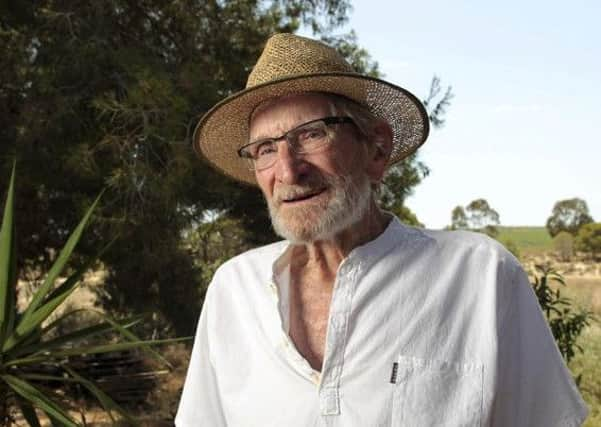Great Train robbery mastermind was Cookstown's most infamous son


The death of Gordon Goody, one of the masterminds of the Great Train Robbery, in Spain on January 29 has thrown up the little known link with Mid Ulster.
Goody, who died at Mojacar, a town in the south of Spain where he ran a bar was one of the last remaining members of the infamous “Great Train Robbery” gang, and mastermind behind what was popularly described as the “crime of the century” - the 1963 theft of £2,631,684, about £48.5m today, from the Glasgow to Euston overnight mail train.
Advertisement
Hide AdAdvertisement
Hide AdFor his role in the heist he received 30 years, with the other 11 captured members receiving a cumulative 290 years, but he only served 12 after a change in the law. He spent the last 36 years living quietly in southern Spain running a bar, the Kon Tiki, although he admitted the odd foray into criminality.
His links to Cookstown have been revealed by former Portadown councillor Ronnie Harkness who met Goody in Spain just before he died.
Ronnie was promoting his book, ‘How to rob a train’, and when he told the 89 year-old former robber that he was originally from Cookstown, Goody revealed his links to the town that he had never forgotten in spite of his eventful career as a crook.
“He was eager to talk about his school days in Glenarny National Boys School, just outside Cookstown, to which he travelled daily on a donkey”, said Ronnie, who has been obsessed with the story of the Great Train Robbery.
Advertisement
Hide AdAdvertisement
Hide Ad“He had fond memories of Cookstown, but intensely disliked his headmaster Baldy McCullough.
“When he heard I was living in Portadown nowadays, he smiled and said he remembered holding the strings of a lodge banner there during a 12th of July parade.
“Gordon told me he had kept contact with a neighbouring friend in Cookstown and they talked regularly on a fortnightly basis,”
Goody also claimed that his induction into the criminal world happened in Tyrone, when he began smuggling cattle across the Irish border.
Advertisement
Hide AdAdvertisement
Hide AdDubbed by the media as the “quiet man,” Goody kept a low profile and was tight-lipped over the crime that captured the public’s imagination, while the former gang leader Bruce Reynolds courted the media and, perhaps the best known accomplice, Ronnie Biggs grabbed headlines after breaking out and spending 30 years evading capture until 2001. Goody later said, “Biggsy was an ar*ehole. I didn’t like him, no-one did.”
Born in Putney in 1930, Douglas Gordon Goody was brought up in a law-abiding family briefly living in London before moving to rural Co Tyrone.
He returned to London after the Blitz and soon found himself on the wrong side of the law after mugging a gay man, for which he received 12 strokes of the birch. He later admitted that it was “not a part of my life that I’m proud of”.
After completing his National Service with the Royal Artillery where he learnt about explosives, Goody found himself in and out of prison. While working as a cabin steward with P&O, he was involved in a series of burglaries which led to three years in prison. There he met a safe cracker and three days after his release, the pair blew a safe at a Chiswick dairy escaping with £1,900.
Advertisement
Hide AdAdvertisement
Hide AdGoody began living the high life with the proceeds from his jobs; he bought a hair salon in Fulham, bought bespoke clothing from Saville Row, wore a Rolex and drove a Jaguar. However, to maintain this life style he had to take on bigger jobs.
On the night of 8 August 1963, a diesel locomotive was stopped as it passed through the Buckinghamshire countryside close to Cheddington and driven a mile-and-a-half to Bridego Bridge, where the 15-strong gang took 30 minutes to unload £2.6m in used notes.
During the audacious raid, the train’s driver Jack Mills was struck over the head with an iron bar and suffered serious injuries and never worked again. Although he recovered, he died in 1970 aged 64 from an illness unrelated to the robbery. His family maintained that he remained traumatised by the attack.
At his trial, Goody was sentenced to 30 years but was released in 1976 and moved to Mojácar, Spain, four years later where he bought a house, a bar and became a much-loved resident, living comfortably with his partner Maria with whom he had a daughter. He said that although she was proud of him, he had made his grandson a bedroom poster which read, “Don’t ever try to imitate your grandad”.
Like most of the gang, Goody saw little of his loot, claiming most had gone on court expenses.